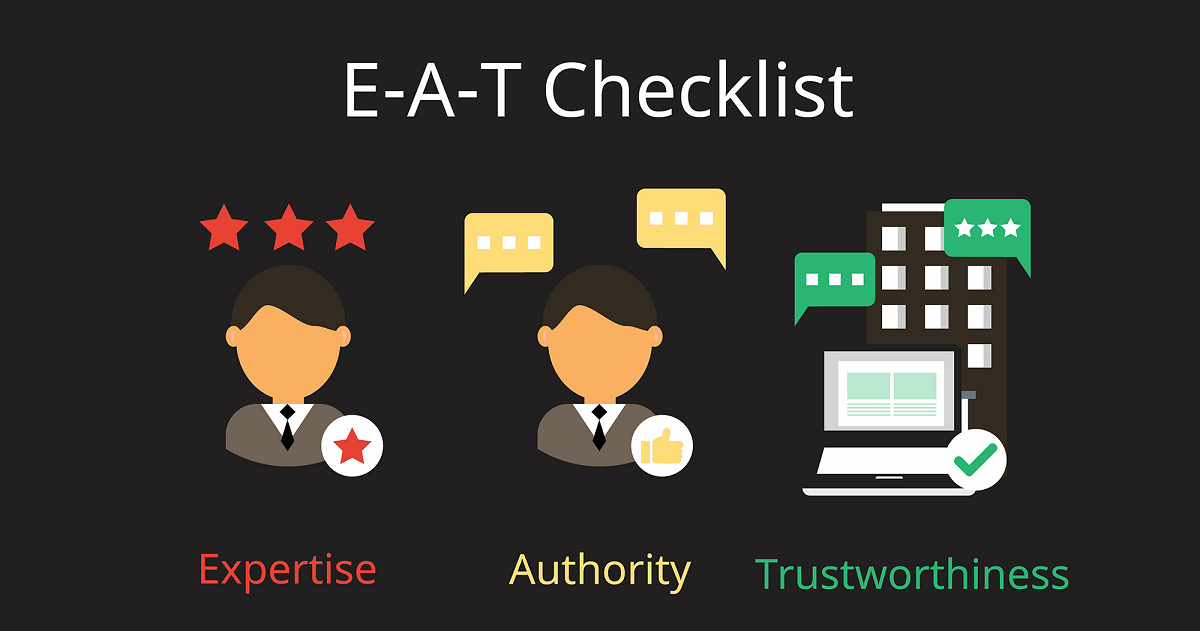BLOG
Mastering Keywords Research For SEO Success

In digital marketing, few strategies are as fundamental and impactful as keyword research. It is the cornerstone of effective SEO, helping websites climb the ranks of search engine results pages (SERPs) and reach their target audience. However, mastering keyword research is more than just identifying popular search terms—it's about understanding user intent, uncovering niche-specific opportunities, and crafting a strategic approach that aligns with your business goals.
In this comprehensive guide, we'll delve into the intricacies of keyword research, equipping you with the knowledge and tools needed to elevate your SEO game. Whether you're a seasoned marketer looking to refine your skills or a newcomer eager to grasp the fundamentals, this guide will empower you to harness the full potential of keywords and drive tangible results for your online presence.
Join us as we explore the art and science of keyword research, uncover advanced techniques for uncovering valuable insights, and learn how to integrate your findings into a cohesive SEO strategy. By the end, you'll be equipped with the expertise to conduct keyword research effectively and leverage it as a powerful catalyst for SEO success.
Understanding Keyword Research
Understanding keyword research is the cornerstone of successful SEO strategies. It involves delving into the language and behavior of your target audience to uncover the specific words and phrases they use when searching for information online. By understanding user intent behind these keywords, you can create content that ranks well in search engine results and resonates with your audience.
This understanding allows you to tailor your content to meet the needs and preferences of your target audience, ultimately driving more organic traffic to your website.
What Is Keyword Research?
Keyword research is identifying and analyzing the specific words and phrases (keywords) people use when searching for information, products, or services online. This crucial step in search engine optimization (SEO) helps website owners and marketers understand the language and terms their target audience uses, allowing them to optimize their content and websites accordingly. By researching and selecting the right keywords, businesses can improve their chances of ranking higher in search engine results pages (SERPs), attract more organic traffic, and ultimately achieve their online goals, whether it's driving sales, generating leads, or increasing brand visibility.
Different Types Of Keywords
- Short-Tail Keywords: Also known as head keywords, these are brief and general terms typically consisting of one or two words. They have a high search volume but are also highly competitive. Example: "shoes," "cars."
- Long-Tail Keywords: Longer and more specific phrases, usually three to four words long. They are more targeted and have lower search volume but often higher conversion rates. Examples: "best running shoes for women," "affordable electric cars."
- LSI Keywords (Latent Semantic Indexing): These are related terms and synonyms that are semantically linked to the main keyword. They help search engines understand the context and relevance of the content. Example: For the keyword "car insurance," LSI keywords could include "vehicle insurance," "auto insurance quotes," and "car coverage."
Each type of keyword serves a different purpose in SEO strategy, and understanding their characteristics can help target the right audience and optimise content effectively.
Tools For Keyword Research
- Google Keyword Planner: A free tool provided by Google that helps you find keywords and ad group ideas, get historical statistics, see how a list of keywords might perform, and create a new keyword list by multiplying several lists of keywords together.
- SEMrush: A popular SEO tool that offers keyword research, competitive analysis, backlink analysis, and more. It provides data on search volume, keyword difficulty, and related keywords.
- Ahrefs: Another comprehensive SEO tool that includes keyword research features. Ahrefs provides keyword difficulty scores, search volume data, and keyword ideas.
- Moz Keyword Explorer: Moz offers a keyword research tool that provides keyword suggestions, search volume, difficulty scores, and SERP analysis.
- Ubersuggest: A free tool by Neil Patel that offers keyword ideas, search volume, and keyword difficulty scores. It also provides suggestions for related keywords.
- KeywordTool.io: This tool provides keyword suggestions based on Google Autocomplete. It offers keyword ideas for Google, YouTube, Bing, Amazon, and more.
- AnswerThePublic: This tool generates keyword ideas through questions, prepositions, and comparisons based on search queries related to your topic.
- SpyFu: SpyFu allows you to spy on your competitors' keywords and see which ones they rank for. It also provides historical data and keyword recommendations.
Keyword Research Process
- Define Your Goals and Target Audience:
- Determine the purpose of your keyword research. Are you aiming to increase organic traffic, improve rankings for specific topics, or target a particular audience segment?
- Understand your target audience's needs, preferences, and search behaviors. Consider their language, pain points, and the type of content they engage with.
- Brainstorm Seed Keywords:
- Start with a few broad keywords related to your niche or industry. These are your "seed keywords" that will form the basis of your research.
- Use your knowledge of the industry and standard terms associated with your products, services, or content topics.
- Expand Your Keyword List:
- Use keyword research tools like Google Keyword Planner, SEMrush, Ahrefs, Moz Keyword Explorer, or Ubersuggest to expand your list.
- Enter your seed keywords into these tools to generate additional keyword ideas. These tools provide data on search volume, competition, and related keywords.
- Analyze Keyword Metrics:
- Evaluate the search volume of each keyword to understand how often it is searched for on search engines. Higher search volume indicates higher potential traffic but also higher competition.
- Assess keyword competition to determine how difficult it will be to rank for a particular keyword. Tools often provide a competitiveness score or indicate the number of advertisers bidding on the keyword.
- Prioritize Keywords:
- Consider relevance to your content and audience. Choose keywords that align with your content strategy and will likely attract the right audience.
- The balance between high-volume, competitive keywords and longer-tail, less competitive keywords. A mix of both can provide a balanced approach to SEO.
- Refine and Expand Your List:
- Refine your keyword list based on your analysis, focusing on keywords with a good search volume, competition, and relevance balance.
- Look for long-tail keywords (more specific and longer phrases) that are less competitive but relevant to your content.
- Organize Keywords into Themes or Groups:
- Group related keywords into themes or clusters. This helps organize your content strategy around specific topics and improves the coherence and relevance of your content.
- Finalize Your Keyword List:
- After refining and organizing your keyword list, finalize the keywords you will target in your content and SEO strategy.
- Regularly revisit and update your keyword list based on search trends, audience behavior, and content strategy changes.
Advanced Keyword Research Techniques
- Identify your main competitors in the industry.
- Use tools like SEMrush, Ahrefs, or SpyFu to analyze the keywords they are ranking for.
- Look for keywords with high search volume and low competition that your competitors are targeting successfully.
- Use this data to identify opportunities to target similar keywords or gaps in their keyword strategy that you can exploit.
Keyword Clustering
- Group related keywords into clusters based on their semantic relevance.
- Use tools like Ahrefs' Keyword Explorer or SEMrush's Keyword Magic Tool to find related keywords.
- Create content clusters around these keyword groups to cover a broader range of related topics and improve your site's topical authority.
Long-Tail Keyword Optimization
- Focus on longer, more specific keywords with lower search volume but higher conversion rates.
- Use tools like Google Keyword Planner or AnswerThePublic to find long-tail keywords that address specific user queries or pain points.
- Incorporate these long-tail keywords naturally into your content to capture more targeted traffic.
Semantic Keyword Optimization
- Identify related terms and synonyms for your target keywords.
- Use tools like LSIGraph or Google's "Searches related to" section to find semantic keywords.
- Incorporate these semantic keywords into your content to improve its relevance and comprehensiveness.
- Google's algorithms increasingly understand context and user intent, so using various related terms can help your content rank better for a broader range of search queries.
Applying Keyword Research To SEO Strategy
- On-page optimization: Incorporating keywords in title tags, meta descriptions, headings, and content is crucial for signaling to search engines what your page is about. However, ensure that keywords are used naturally and do not compromise your content's readability or user experience.
- Content creation: Use your keyword research to guide your content strategy. Create high-quality, informative, and engaging content that addresses the intent behind your identified keywords. Aim to provide value to your audience while naturally incorporating your target keywords.
- Link building: When building backlinks to your site, consider using keywords in the anchor text of your links. This can help search engines understand the relevance of your content to the linked keywords. However, avoid over-optimising and keep anchor text manageable with keywords, as this can appear unnatural and may lead to penalties.
- Tracking and adjusting: Continuously monitor the performance of your keywords using tools like Google Analytics and Google Search Console. Track changes in rankings, organic traffic, and conversions associated with specific keywords. Use this data to refine your keyword strategy, focusing on keywords that drive the most relevant traffic and conversions.
Best Practices And Tips
- Regularly update your keyword list: Keep your keyword list updated based on changing trends, user behavior, and search engine algorithms. Regularly review and refine your list to stay relevant.
- Use long-tail keywords for voice search optimization: With the increasing popularity of voice search, optimize your content with long-tail keywords that mimic natural language queries to improve visibility in voice search results.
- Focus on user experience and natural language: Incorporate keywords seamlessly into your content to maintain a natural flow and enhance user experience. Avoid keyword stuffing, which can negatively impact readability and user engagement.
- Avoid keyword stuffing: Maintain a balanced keyword density and avoid overusing keywords in your content. Focus on providing valuable, informative content that naturally includes relevant keywords.
- Monitor keyword performance: Regularly track the performance of your chosen keywords using tools like Google Analytics and Search Console. Adjust your keyword strategy based on performance data to improve rankings and traffic.
- Diversify your keyword strategy: Don't rely solely on high-volume keywords. Include a mix of short-tail, long-tail, and LSI keywords to capture a broader range of search queries and attract diverse audiences.
- Keep an eye on the competition: Analyze your competitors' keyword strategies to identify new opportunities and stay ahead in the SEO game. Identify keywords they rank for and assess their performance to inform your strategy.
- Optimize for featured snippets: Identify keywords that trigger featured snippets (answer boxes) in search results. Structure your content to provide concise, authoritative answers to these queries to increase your chances of appearing in featured snippets.
- Use keyword research tools effectively: Make the most of keyword research tools like Google Keyword Planner, SEMrush, Ahrefs, and Moz Keyword Explorer. These tools can provide valuable insights into keyword trends, search volume, competition, and related keywords.
- Stay updated with SEO trends: Keep yourself informed about the latest trends and updates in SEO and search engine algorithms. This will help you adapt your keyword strategy to align with current best practices and ranking factors.
Conclusion
Mastering keyword research is crucial for achieving SEO success. Understanding your audience's intent and behavior can uncover valuable keywords that drive targeted traffic to your website. Tools like Google Keyword Planner, SEMrush, and Ahrefs can help you identify relevant keywords with high search volumes and low competition. Focusing on long-tail keywords and user-generated queries can further enhance your SEO strategy.
Continuously monitoring keyword performance and adapting your strategy based on data insights will ensure your efforts remain effective in the ever-evolving landscape of search engine optimization. With a well-researched and strategic approach to keywords, you can improve your website's visibility, attract quality traffic, and ultimately achieve your SEO goals.
In digital marketing, few strategies are as fundamental and impactful as keyword research. It is the cornerstone of effective SEO, helping websites climb the ranks of search engine results pages (SERPs) and reach their target audience. However, mastering keyword research is more than just identifying popular search terms—it's about understanding user intent, uncovering niche-specific opportunities, and crafting a strategic approach that aligns with your business goals.
In this comprehensive guide, we'll delve into the intricacies of keyword research, equipping you with the knowledge and tools needed to elevate your SEO game. Whether you're a seasoned marketer looking to refine your skills or a newcomer eager to grasp the fundamentals, this guide will empower you to harness the full potential of keywords and drive tangible results for your online presence.
Join us as we explore the art and science of keyword research, uncover advanced techniques for uncovering valuable insights, and learn how to integrate your findings into a cohesive SEO strategy. By the end, you'll be equipped with the expertise to conduct keyword research effectively and leverage it as a powerful catalyst for SEO success.











